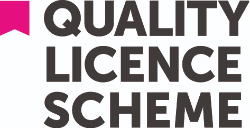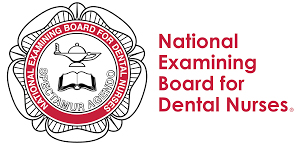Autism Awareness - Advanced
 85.5%
85.5%
- SALE Savings End Midnight Tuesday 12th December
- SALE Savings End Midnight Tuesday 12th December
Autism Awareness - Advanced
This Level 4 Autism Awareness Advanced course builds on the Level 3 Autism Awareness course. It covers key discoveries and claims in the history of the condition and outlines modern research surrounding the autism spectrum. The course also covers the educational context for autism, including communication and Theory of Mind, and outlines approaches and common issues regarding care and therapeutic interventions.
Modules
Module One: ASD Overview
At the end of Module One, learners should be able to:
- explain what ‘autism spectrum’ means
- describe the main symptoms and manifestations of autism relating to the core ‘triad’ of difficulties in social communication, social interaction, and social imagination
- outline the main diagnostic sub-groups (Asperger’s, Autism, PDD-NOS) within the autism spectrum family of conditions
- outline the ways symptoms vary in their expression and severity between individuals and sub-groups on the spectrum, and between specific age groups (children, teens, adults)
Module Two: History of autism diagnosis
At the end of Module Two, learners should be able to:
- outline key discoveries in the history of autism research and practice
- consider procedures and some of the problems involved in identifying and diagnosing autistic conditions (children, teens, adults; males, females)
- critically consider claims concerning the prevalence of autism across different time periods and in different populations
Module Three: Modern science supporting the condition
At the end of Module Three, learners should be able to:
- outline the explanations – particularly psychological and biological – of what is currently known about the causes and manifestations of autism
- outline recent psychological and biological research findings concerning the causes of autism
- understand some of the scientific research areas through which autism is being explored and how these can help people with autism
Module Four: Education, communication and theory of mind
At the end of Module Four, learners should be able to:
- discuss the implications of autism on education, and consider what educational options may be available for the child or young person on the autism spectrum
- explain Theory of Mind, especially with regards to communication, and the difficulties that can arise from an underdeveloped Theory of Mind.
- outline interventions that have been developed by psychologists to teach autistic children theory of mind, and to assist them with false-belief training.
Module Five: Intervention and support
At the end of Module Five, learners should be able to:
- outline the main approaches to care and therapeutic interventions for people on the autism spectrum
- discuss issues that relate to family, social support services, and adulthood in people on the spectrum
- outline the differences in assumptions about autism within ethnic minorities and across the world, and how these affect provision for people with autism
Entry Requirements
There is no experience or previous qualifications required for enrolment on this course. It is available to all students, of all academic backgrounds.
All course fees, inclusive of all payment plans including our Premium Credit Limited option, must be settled before certification can be ordered.
*You will have access to the course for 24 months.

At the end of this course successful learners will be given the option to receive a Certificate of Achievement from the Quality Licence Scheme and a Learner Unit Summary (which lists the components the learner has completed as part of the course).
Level 4 Autism Awareness - Advanced Certificate of Achievement
The course has been endorsed under the Quality Licence Scheme. This means that learndirect has undergone an external quality check to ensure that the organisation and the courses it offers, meet defined quality criteria. The completion of this course alone does not lead to a regulated qualification* but may be used as evidence of knowledge and skills gained. The Learner Unit Summary may be used as evidence towards Recognition of Prior Learning if you wish to progress your studies in this subject. To this end the learning outcomes of the course have been benchmarked at Level 4 against level descriptors published by Ofqual, to indicate the depth of study and level of demand/complexity involved in successful completion by the learner.
The course itself has been designed learndirect to meet specific learners’ and/or employers’ requirements which cannot be satisfied through current regulated qualifications. The Quality Licence Scheme endorsement involves robust and rigorous quality audits by external auditors to ensure quality is continually met. A review of courses is carried out as part of the endorsement process.
The Quality Licence Scheme is part of the Skills and Education Group, a charitable organisation that unites education and skills-orientated organisations that share similar values and objectives. With more than 100 years of collective experience, the Skills and Education Group’s strategic partnerships create opportunities to inform, influence and represent the wider education and skills sector.
The Skills and Education Group also includes two nationally recognised awarding organisations; Skills and Education Group Awards and Skills and Education Group Access. Through our awarding organisations we have developed a reputation for providing high-quality qualifications and assessments for the education and skills sector. We are committed to helping employers, organisations and learners cultivate the relevant skills for learning, skills for employment, and skills for life.
Our knowledge and experience of working within the awarding sector enables us to work with training providers, through the Quality Licence Scheme, to help them develop high-quality courses and/or training programmes for the non-regulated market.
*Regulated qualification refers to those qualifications that are regulated by Ofqual / CCEA / Qualification Wales
To view a sample of the Certificate of Achievement, please click here.
- SALE Savings End Midnight Tuesday 12th December
- SALE Savings End Midnight Tuesday 12th December
Autism Awareness - Advanced
This Level 4 Autism Awareness Advanced course builds on the Level 3 Autism Awareness course. It covers key discoveries and claims in the history of the condition and outlines modern research surrounding the autism spectrum. The course also covers the educational context for autism, including communication and Theory of Mind, and outlines approaches and common issues regarding care and therapeutic interventions.
Modules
Module One: ASD Overview
At the end of Module One, learners should be able to:
- explain what ‘autism spectrum’ means
- describe the main symptoms and manifestations of autism relating to the core ‘triad’ of difficulties in social communication, social interaction, and social imagination
- outline the main diagnostic sub-groups (Asperger’s, Autism, PDD-NOS) within the autism spectrum family of conditions
- outline the ways symptoms vary in their expression and severity between individuals and sub-groups on the spectrum, and between specific age groups (children, teens, adults)
Module Two: History of autism diagnosis
At the end of Module Two, learners should be able to:
- outline key discoveries in the history of autism research and practice
- consider procedures and some of the problems involved in identifying and diagnosing autistic conditions (children, teens, adults; males, females)
- critically consider claims concerning the prevalence of autism across different time periods and in different populations
Module Three: Modern science supporting the condition
At the end of Module Three, learners should be able to:
- outline the explanations – particularly psychological and biological – of what is currently known about the causes and manifestations of autism
- outline recent psychological and biological research findings concerning the causes of autism
- understand some of the scientific research areas through which autism is being explored and how these can help people with autism
Module Four: Education, communication and theory of mind
At the end of Module Four, learners should be able to:
- discuss the implications of autism on education, and consider what educational options may be available for the child or young person on the autism spectrum
- explain Theory of Mind, especially with regards to communication, and the difficulties that can arise from an underdeveloped Theory of Mind.
- outline interventions that have been developed by psychologists to teach autistic children theory of mind, and to assist them with false-belief training.
Module Five: Intervention and support
At the end of Module Five, learners should be able to:
- outline the main approaches to care and therapeutic interventions for people on the autism spectrum
- discuss issues that relate to family, social support services, and adulthood in people on the spectrum
- outline the differences in assumptions about autism within ethnic minorities and across the world, and how these affect provision for people with autism
Entry Requirements
There is no experience or previous qualifications required for enrolment on this course. It is available to all students, of all academic backgrounds.
All course fees, inclusive of all payment plans including our Premium Credit Limited option, must be settled before certification can be ordered.
*You will have access to the course for 24 months.
Endorsement

At the end of this course successful learners will be given the option to receive a Certificate of Achievement from the Quality Licence Scheme and a Learner Unit Summary (which lists the components the learner has completed as part of the course).
Level 4 Autism Awareness - Advanced Certificate of Achievement
The course has been endorsed under the Quality Licence Scheme. This means that learndirect has undergone an external quality check to ensure that the organisation and the courses it offers, meet defined quality criteria. The completion of this course alone does not lead to a regulated qualification* but may be used as evidence of knowledge and skills gained. The Learner Unit Summary may be used as evidence towards Recognition of Prior Learning if you wish to progress your studies in this subject. To this end the learning outcomes of the course have been benchmarked at Level 4 against level descriptors published by Ofqual, to indicate the depth of study and level of demand/complexity involved in successful completion by the learner.
The course itself has been designed learndirect to meet specific learners’ and/or employers’ requirements which cannot be satisfied through current regulated qualifications. The Quality Licence Scheme endorsement involves robust and rigorous quality audits by external auditors to ensure quality is continually met. A review of courses is carried out as part of the endorsement process.
The Quality Licence Scheme is part of the Skills and Education Group, a charitable organisation that unites education and skills-orientated organisations that share similar values and objectives. With more than 100 years of collective experience, the Skills and Education Group’s strategic partnerships create opportunities to inform, influence and represent the wider education and skills sector.
The Skills and Education Group also includes two nationally recognised awarding organisations; Skills and Education Group Awards and Skills and Education Group Access. Through our awarding organisations we have developed a reputation for providing high-quality qualifications and assessments for the education and skills sector. We are committed to helping employers, organisations and learners cultivate the relevant skills for learning, skills for employment, and skills for life.
Our knowledge and experience of working within the awarding sector enables us to work with training providers, through the Quality Licence Scheme, to help them develop high-quality courses and/or training programmes for the non-regulated market.
*Regulated qualification refers to those qualifications that are regulated by Ofqual / CCEA / Qualification Wales
To view a sample of the Certificate of Achievement, please click here.
 85.5%
85.5%
learning
learning hours
























